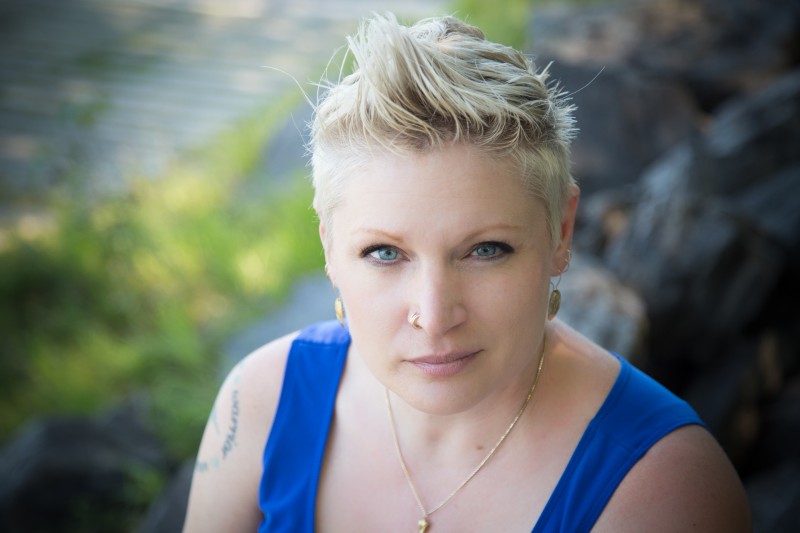How do disabled mothers experience the world?

For Mothers Day this year we interviewed Jewelles Smith for her views on the main issues facing women with disabilities who are mothers. Jewelles is currently completing her PhD on mothering and disability at the University of British Columbia. She is DAWN Canadas BC Project Coordinator.
Question:
Both research and anecdotal evidence suggests that women with disabilities face systemic as well as attitudinal barriers that limit their ability to mother. Can you talk about some of those barriers?
Jewelles:
One of the issues that women with disabilities who are mothers face is that people who are evaluating their situations really do not have any experience or understanding of disability. For example, judges and social workers assume that because the parenting style is different, it cannot be good. That results in officials making decisions to award custody to abusive male partners rather than disabled mothers.
Another issue is that many places are not built in a way that makes it easy for women with disabilities to engage with their children. Most schools, parks, and day cares are not accessible. They assume ability. For example, one of the schools that my sons attended had steep stairs and though they had an elevator, it was locked and I had to go to the office to get access. This was granted, but begrudgingly because I didnt look disabled enough.
Attitudinal barriers are another issue. While we are no longer publicly practicing eugenics or forced sterilization, these ideas are still operating in the form of coerced sterilization. So women are told: Do you really want to pass on your disability? or Do you think you can handle it?
Cerebral palsy (CP) is particularly misunderstood. Hospital staff automatically assumes that a woman with CP cannot parent. They dont ask if the house has been adapted or if there are supports in place. Instead, they call in child protection agencies.
And if a woman has a learning disability (LD), Fetal Alcohol Spectrum Disorder (FASD) or a mental health issue, and loses custody, the chances of getting the child/children back is statistically very low.
Question:
Are you aware of any programs/services/models that have been effective in supporting mother with disabilities? If not, what would you suggest based on your research, community work and personal experience?
Jewelles:
The fact is that programs to support mothers with disabilities simply do not exist. There are one-offs, but no actual programs. Women end up relying on informal support. Sometimes they have a family that will support them, and other times the family will be the ones who report them to a child protection agency.
Mothers with disabilities need both policy and service level supports. We heard repeatedly when we did the National Accessibility and Accommodation Survey (NAAS) that women with disabilities had support workers who were explicitly told not to perform any tasks related to child care such as washing the childs dishes or laundry. They could only take care of the mother. And this was a pretty wide-spread policy.
Women would also benefit from standard education on how to mother in specific circumstances, for example if you have upper body weakness, or if you are missing a limb. I am aware that in the Deaf community, parents share resources on how to handle particular situations. It would be great if this kind of specific knowledge was collected and shared for all communities.
Also we definitely need more education for university students who are looking to become lawyers, social workers, teachers, etc. on how to engage with parents with disabilities. Its similar to what we are doing with DAWN Canadas anti-violence project Legislation Policy and Service Responses to Violence against Women with Disabilities. Frontline workers need to learn how to be more respectful and inclusive of parents with disabilities and not to make assumptions. In reality every parent, disabled or not, gets help from other family members, neighbours, friends, etc. No one does it completely on their own.
Question:
You have used visual art to express your theories and experiences of mothering with a disability. Can you speak to the role of art in increasing societys understanding of what it means to be a mother who has a disability?
Jewelles:
My way of processing is visual. For example I would read Paulo Frieres Pedagogy of the Oppressed and go paint while thinking about his theories. Art is my way of exploring ideas and concepts. Last year, I had an exhibition of a selection of these paintings in Revelstoke entitled Visual Interrogations. It was an amazing opportunity to open a dialogue about what disabled mothering means with members of the public who have never thought about it. I am hoping to incorporate art as part of the methodology I use in my PhD research, as a way of helping women tell their stories. I have decided to focus on this topic because in the 10 years I have spent in this field, I have not come across a large study on disabled mothering. We do not know how disabled mothers experience the world, and we should.
